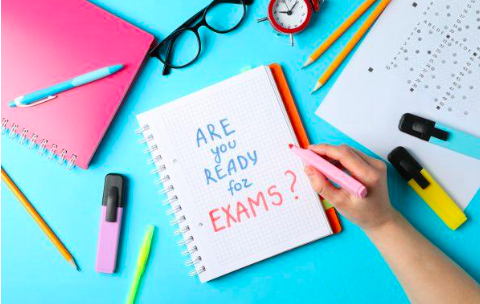As the midterm exams approach, it’s natural to feel a mix of anticipation and stress. However, with thoughtful preparation and strategic study habits, you can navigate this period with confidence and success. This crucial phase of your academic journey calls for a comprehensive approach, encompassing effective time management, targeted revision, and mindful self-care. In this guide, we’ll explore valuable study and preparation tips to help you maximize your performance during midterm and final exams, ensuring that you not only retain the material but also approach the assessments with a well-rounded and resilient mindset.
Create a Realistic Study Schedule:
- Break down your study sessions into manageable chunks, considering both short-term and long-term goals.
- Make a list of your hardest final to your least hardest final- study in this order so if you have extra time, you can go back and look over your hardest material.
- Plan specific times for different subjects to maintain focus and prevent burnout.
Active Learning Techniques:
- The ARC room is always open for help and studying
- Explore various learning resources, including textbooks, lecture notes, online tutorials, and supplemental materials.
- Different perspectives and explanations can enhance your understanding of complex concepts.
- Engage in active learning methods such as summarizing concepts in your own words, teaching the material to someone else, or creating flashcards.
- Practice with past exams or sample questions to familiarize yourself with the format.
- Use different colors and a fun format to make studying fun and interesting.
- Identify areas where you feel less confident and prioritize them in your study schedule.
- Plan more time for challenging topics while reviewing familiar material to maintain a balanced approach.
Take Breaks and Stay Healthy:
- Incorporate regular breaks during study sessions to maintain focus and prevent mental fatigue.
- Prioritize sleep, exercise, and a balanced diet to support overall well-being.
- Incorporate a self care day in between your studying to take time away from the books and focus on yourself.
Form or Join Study Groups:
- Collaborate with peers to discuss and review material.
- Explaining concepts to others and listening to their perspectives can deepen your understanding.
Reflect and Adjust:
- Periodically assess your study methods and adjust them based on effectiveness.
- Identify what works best for you and refine your approach as needed.
Avoiding distractions, especially from your phone, can significantly enhance your focus and productivity during study sessions. Here are some tips to help you resist the temptation of looking at your phone while studying:
Designate Phone-Free Zones:
- Choose a specific study environment or area where phone use is strictly prohibited. This can condition your mind to associate that space with focused work.
- Physically move your phone to a location that requires you to get up to reach it. This inconvenience can serve as a deterrent to mindless phone-checking.
- Schedule short breaks between study sessions. During these breaks, you can check your phone or attend to messages, reducing the temptation to do so while studying.
Turn Off Non-Essential Notifications:
- Disable non-essential notifications on your phone such as, Snapchat, instagram, twitter and Tik Tok to minimize interruptions. This allows you to focus solely on your study materials without constant alerts.
Inform Others of Your Study Time:
- Communicate your study schedule to friends and family, asking them not to disturb you during these dedicated periods. This reduces external pressures to check your phone.









































